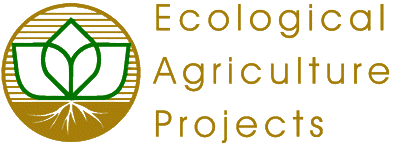

EAP Publications | Virtual Library | Magazine Rack | Search | What's new
2. The aims of these guidelines are:
3. These guidelines are at this stage a first step into official international harmonisation of the requirements for organic products in terms of production and marketing standards, inspection arrangements and labelling requirements. In this area the experience with the development of such requirements and their implementation is still very limited. Moreover, consumer perception on the organic production method may, in certain detailed but important provisions, differ from region to region in the world. Therefore, the following is recognised at this stage:
4. These guidelines set out the principles of organic production at farm, preparation, storage, transport, labelling and marketing stages, and provides an indication of accepted permitted inputs for soil fertilising and conditioning, plant pest and disease control and, food additives and processing aids. For labelling purposes, the use of certain terms inferring that organic production methods have been used are restricted to products derived from operators under the supervision of a certification body or authority.
5. Organic agriculture is one among the broad spectrum of methodologies which are supportive of the environment. Organic production systems are based on specific and precise standards of production which aim at achieving optimal agroecosystems which are socially, ecologically and economically. Terms such as "biological" and "ecological" are also sometimes used in an effort to describe the organic system more clearly. Requirements for organically produced foods differ from those for other agricultural products in that production procedures are an intrinsic part of the identification and labelling of, and claims for, such products.6. "Organic" is a labelling term that denotes products that have been produced in accordance with organic production standards and certified by a duly constituted certification body or authority. Organic agriculture is based on minimising the use of external inputs, avoiding the use of synthetic fertilizers and pesticides. Organic agriculture practices cannot ensure that products are completely free of residues, due to general environmental pollution. However, methods are used to minimize pollution of air, soil and water. Organic food handlers, processors and retailers adhere to standards to maintain the integrity of organic agriculture products. The primary goal of organic agriculture is to optimize the health and productivity of interdependent communities of soil life, plants, animals and people.
7. Organic agriculture is a holistic production management system which promotes and enhances agroecosystem health, including biodiversity, biological cycles, and soil biological activity. It emphasises the use of management practices in preference to the use of off-farm inputs, taking into account that regional conditions require locally adapted systems. This is accomplished by using, where possible, cultural, biological and mechanical methods, as opposed to using synthetic materials, to fulfill any specific function within the system. An organic production system is designed to:
8. The concept of close contact between the consumer and the producer is common a long established practice. Greater market demand, the increasing economic interests in production, and the increasing distance between producer and consumer has stimulated the introduction of external control and certification procedures.
9. An integral component of certification is the inspection of the organic management system which provides formal product verification. Procedures for operator certification are based primarily on a yearly description of the agricultural enterprise as prepared by the operator in cooperation with the inspection body. Likewise, at the processing level, standards are also developed against which the processing operations and plant conditions can be inspected and verified. Where the inspection process is undertaken by the certification body or authority, there must be clear separation of the inspection and certification function. In order to maintain their integrity, certification Inspection bodies or authorities which certify the procedures of the operator should be independent of economic interests with regard to the certification of operators. in order to maintain their integrity
10. Apart from a small portion of agricultural commodities marketed directly from the farm to consumers, most products find their way to consumers via established trade channels. To minimise deceptive practices in the market place, specific measures are necessary to ensure that trade and processing enterprises can be audited effectively. Therefore, the regulation of a process, rather than a final product, demands responsible action by all involved parties.
11. Import requirements should be based on the principles of equivalency and transparency as set out in the Principles for Food Import and Export Inspection and Certifications.. In accepting imports of organic products, countries would usually assess the inspection and certification procedures and the standards applied in the exporting country.
12. Recognizing that organic production systems continue to evolve and that organic principles and standards will continue to be developed under these guidelines, the Codex Committee on Food Labelling (CCFL) shall review these guidelines on a regular basis. The CCFL shall initiate this review process by inviting member governments and international organizations to make proposals to the CCFL regarding amendments to these guidelines prior to each CCFL meeting.
Codex Alimentarius Working Group, May 27th, 1998. (Draft copy)
Important Note
Text that appears in bold and underlined letters indicates new text relative to the last document of the "Codex Alimentarius Working Group".
Text that appears in red italics letters indicates eliminated text.
Text that appears in green will be discussed next year.
Info Request | Services | Become EAP Member | Site Map
Give us your comments about the EAP site
Ecological Agriculture Projects, McGill University (Macdonald
Campus)
Ste-Anne-de-Bellevue, QC, H9X 3V9 Canada
Telephone:
(514)-398-7771
Fax:
(514)-398-7621
Email: info@eap.mcgill.ca
To report problems or otherwise comment on the structure of this site, send mail to the Webmaster